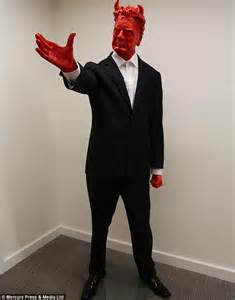A Quote by Isaac D'Israeli
It is fortunate that Literature is in no ways injured by the follies of Collectors, since though they preserve the worthless, they necessarily defend the good.
Quote Topics
Related Quotes
The duty imposed upon him [the president] to take care that the laws be faithfully executed, follows out the strong injunctions of his oath of office, that he will 'preserve, protect, and defend the Constitution.' The great object of the executive department is to accomplish this purpose; and without it, be the form of government whatever it may, it will be utterly worthless for offence or defense; for the redress of grievances or the protection of rights; for the happiness, or good order, or safety of the people.
Fantasy is a literature particularly useful for embodying and examining the real difference between good and evil. In an America where our reality may seem degraded to posturing patriotism and self-righteous brutality, imaginative literature continues to question what heroism is, to examine the roots of power, and to offer moral alternatives. Imagination is the instrument of ethics. There are many metaphors besides battle, many choices besides war, and most ways of doing good do not, in fact, involve killing anybody. Fanstasy is good at thinking about those other ways.
Part of my methodological approach is made explicit when I discuss ways in which literature can have philosophical significance. Literature doesn't typically argue - and when it does, it's deadly dull. But literature can supply the frame within which we come to observe and reason, or it can change our frame in highly significant ways. That's one of the achievements I'd claim for Mann, and for Death in Venice.
For the judging of contemporary literature the only test is one's personal taste. If you much like a new book, you must call it literature even though you find no other soul to agree with you, and if you dislike a book you must declare that it is not literature though a million voices should shout you that you are wrong. The ultimate decision will be made by Time.
There is no one kind of thing that we 'perceive' but many different kinds, the number being reducible if at all by scientific investigation and not by philosophy: pens are in many ways though not in all ways unlike rainbows, which are in many ways though not in all ways unlike after-images, which in turn are in many ways but not in all ways unlike pictures on the cinema-screen--and so on.
I was bought up as a boy. I don't blame my parents in the slightest since it was just an unfortunate timing in many ways, in other ways it was very fortunate. If I'd been born 20 years earlier, there wouldn't have been the surgical techniques to correct the deformity and by the time I was of an age, they did exist. I was very lucky.
As a form of moral insurance, at least, literature is much more dependable than a system of beliefs or a philosophical doctrine. Since there are no laws that can protect us from ourselves, no criminal code is capable of preventing a true crime against literature; though we can condemn the material suppression of literature - the persecution of writers, acts of censorship, the burning of books - we are powerless when it comes to its worst violation: that of not reading the books. For that crime, a person pays with his whole life; if the offender is a nation, it pays with its history.
Of all earthly blessings, I place Liberty in the first rank, and of course, consider the obligation to defend and preserve it, as the most sacred of all our civil and social duties... It is not in the power of any single, or few individuals to preserve liberty. It can only be effected by the people themselves; by their intelligence, virtue, courage, and patriotism.






































